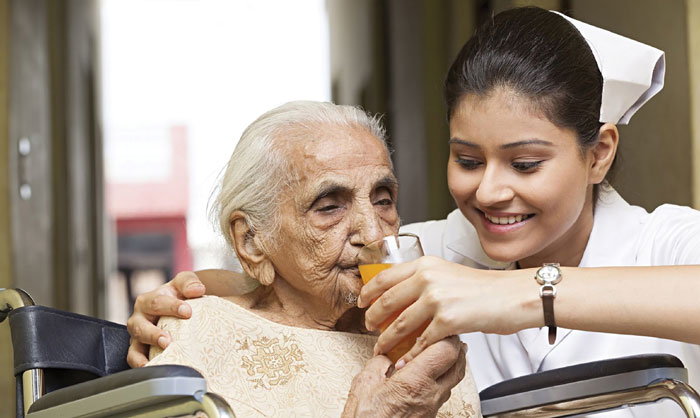Irfan Tramboo
Srinagar, Feb 15: While healthcare system has been upgraded over the years, there has been no post creation for the nursing staff in the last several decades in Kashmir, leaving a dent in the effective patient care.
All the major hospitals in Srinagar-especially those associated with the Government Medical College (GMC)-where these nurses are working have been upgraded over the years, but the nursing staff strength remained the same.
The nurse-patient ratio comes nowhere near what it should be as per the Indian Nursing Council (INC). As per INC, the ideal ratio is 1:4-which means one nurse should be there to cater to the needs of four patients.
If the nurses working in GMC Srinagar are to be taken into consideration, there are around 1200 such nurses working in the associated hospitals-the staff strength is what was used to be a few decades ago-keeping in view shortage of the nurses in consideration, the new nurses that have been engaged purely on a contract basis.
What is even more interesting here is that the bed strength of the GMC hospitals has also been increased manifold over the years and 200-bedded hospitals have been upgraded to 400. The bed strength has also been increased at the lone maternity care hospital-Lal Ded in Srinagar.
Lal Ded Hospital is the biggest maternity hospital of the Valley with a total bed strength of 500 beds. While the strength has been increased, the nursing staff has been the same.
Same is the case of the SMHS hospital, whose current bed strength has been increased to 850, but the nursing staff strength there also remained the same. The original staff strength of Bone and Joints Hospital was 125. However, the present actual bed strength is 244.
Further, as per INC norms, the nurse-patient ratio should be 1:3 for general wards in medical colleges-this ratio is way beyond what is should be in the GMC Hospitals in Srinagar. As per the norms, the ratio should be 1:5 for district hospitals-which again does not fall in line when it comes to the peripheral healthcare in Kashmir, one in each clinic room of the OPD and 1:1 in ICU, ICCU and other critical care areas.
“There has been no post creation to deal with the shortage of nurses in Kashmir. The requirement is not even as per the norms and rules. The nurses, while they are overburdened, are being paid less-which is a different story altogether,” said Parveen Khan, President J&K Nursing Association.
The medical academics who have worked on the subject of the effects of not having a proper ratio of nurses for the patients said that it is potent to affect the healthcare system and patient care.
“It has been shown that a poor nurse-patient ratio leads to poor quality of nursing care for the patients and adds to the workloads of nursing staff, which may again impact safe and effective patient care,” the academics said.


